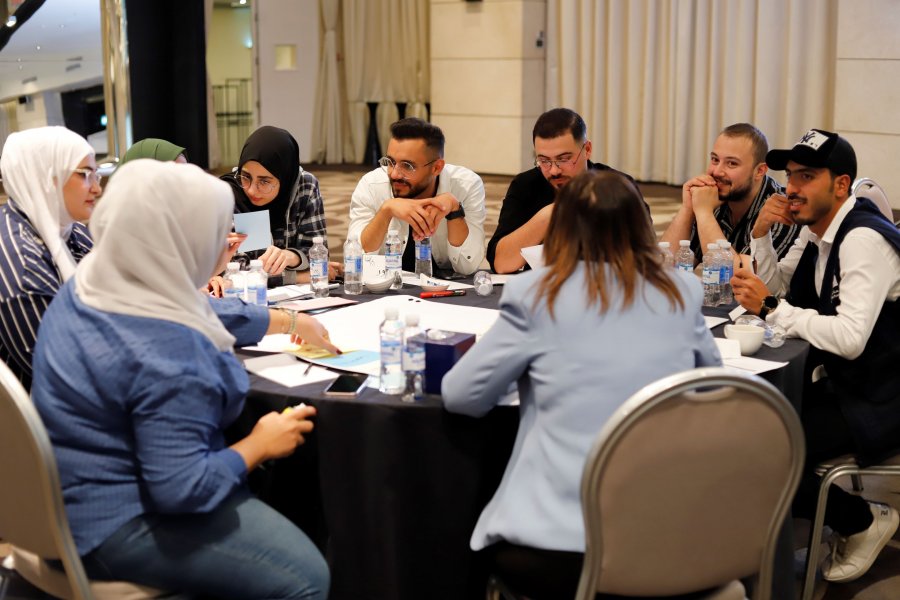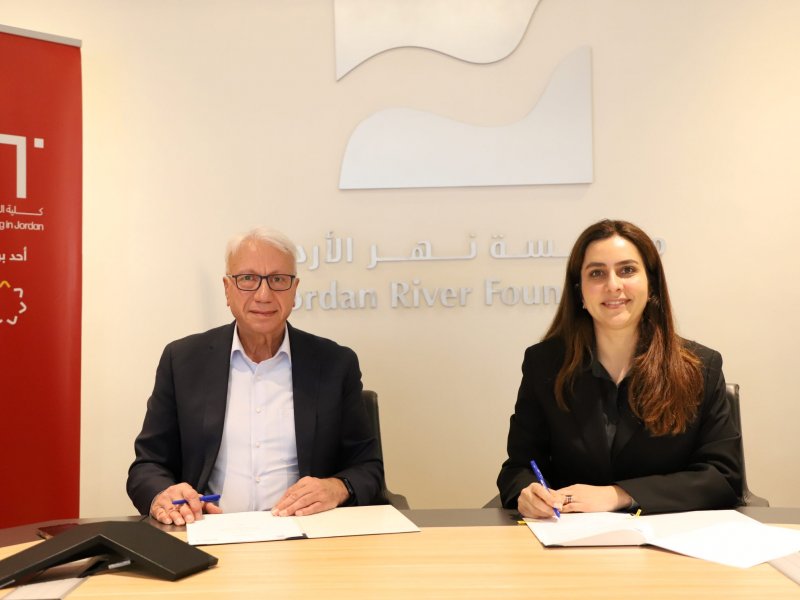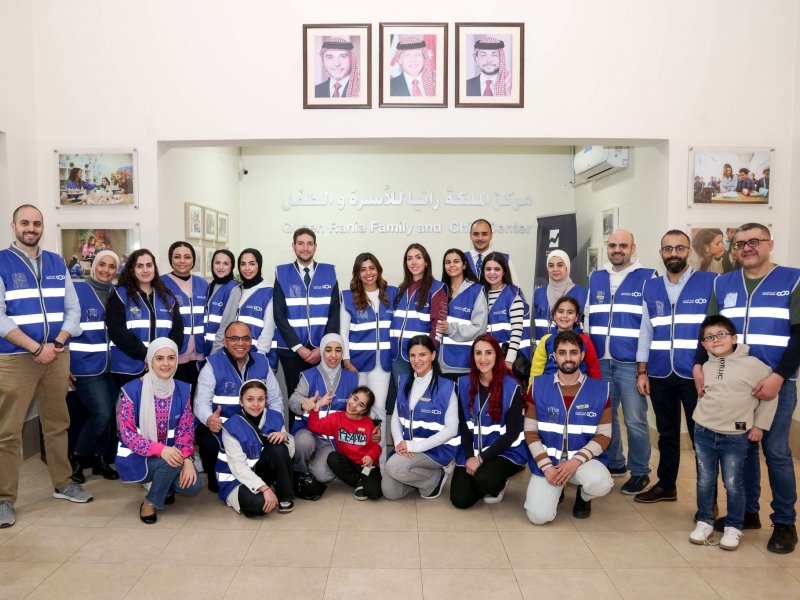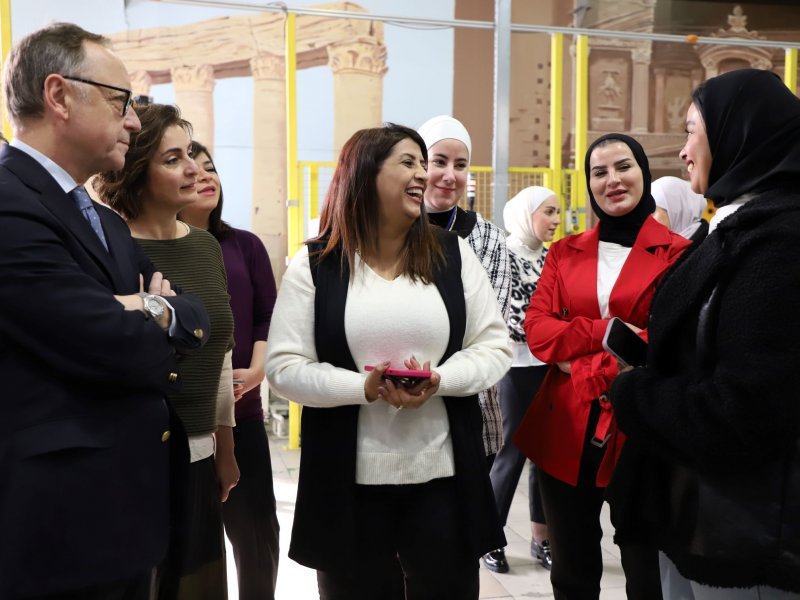A consultative workshop for youth on the Global Refugee Forum

From 12th to 14th November, a three-day consultative workshop for youth was organized in preparation for of the Global Refugee Forum 2023. It was held under the supervision of the Jordan River Foundation (JRF) in cooperation with the Danish Refugee Council (DRC) and the UNHCR. The workshop commenced by establishing a strong foundation for the youth, introducing them to the Global Refugee Forum (GRF – at which the government of Jordan will co-convene - and the Global Compact on Refugees (GCR). It included interactive sessions allowing youth to confirm existing challenges, add new perspectives, and formulate recommendations.Activities varied between specific group discussions and practical exercises, enabling participants to identify challenges and develop recommendations. Strategies for effective communication with stakeholders were built, culminating in a preparation session for engaging with stakeholders.
The Global Compact on Refugees was adobted in 2018 and designed to promote international cooperation in refugee responses across the global. The second Global Refugee Forum will be held in Geneva in December this year on 13th to 15th December in Geneva and is a chance for the world to assess the effectiveness of its commitments at the previous Forum, and to make new commitments. This event, combined with others DRC has supported in Uganda and Colombia, will ensure the voices of young people in refugee-hosting countries is heard by policy –makers at the GRF.
During the first two days, 35 young individuals from various Jordanian provinces discussed significant challenges in education and livelihood. Concerning education, criticisms focused on the high university fees specified in dollars, hindering refugee youth's integration into universities. The discussions highlighted the difficulties faced by youth in finding suitable employment opportunities, especially in sectors with limited skill requirements.
After productive dialogue with stakeholders, youth participants committed to important pledges. These included not linking scholarships to academic grades but rather to abilities and competence. The importance of providing internal job opportunities within the university for financially challenged students was also emphasized. Additionally, the youth stressed the need for effective guidance in choosing suitable majors aligned with market demand.
In the context of livelihood, the youth identified challenges in establishing their own businesses, primarily due to insufficient funding, lack of experience, and the absence of a steady income source. Limited interest in sustainability projects and inadequate employment opportunities further compounded their struggles. Proposed solutions included providing studies on the job market to support their understanding and achieve their professional aspirations, offering small project grants, and raising awareness about the fundamentals and management of small projects.
On the concluding third day, youth engaged with authorities and stakeholders, exchanging challenges, recommendations, and solutions formulated during the workshop. Spotlighting these challenges underscores the need for innovative and comprehensive solutions to enhance the educational and professional situation of refugee youth in the Kingdom. In conclusion, the workshop successfully achieved its goal of laying a strong foundation for youth, equipping them with necessary communication strategies, enhancing their role in providing valuable recommendations and contributing to improving societal conditions.








